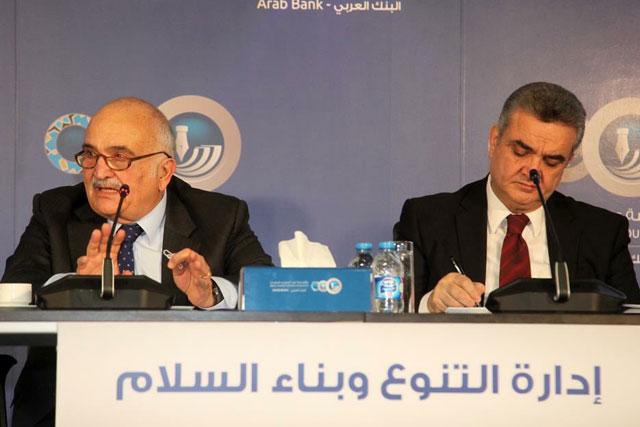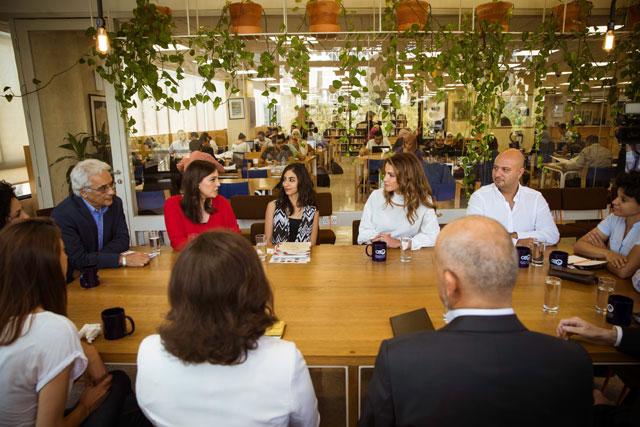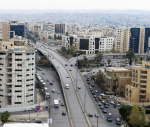You are here
Eradicating intolerance requires shift from rentier to institutional state — Prince Hassan
By Dana Al Emam - Dec 11,2016 - Last updated at Dec 11,2016

HRH Prince Hassan delivers a lecture at the Abdul Hameed Shoman Foundation on Thursday (Photo courtesy of AHSF)
AMMAN — Effective management of religious tolerance and cultural diversity is a major catalyst for creativity and innovation, said HRH Prince Hassan.
Delivering a lecture, titled “Diversity management and peace building”, held Thursday evening at the Abdul Hameed ShomanFoundation (AHSF), Prince Hassan highlighted a need for recognising religious and cultural diversity in light of the continuously changing world dynamics.
Diversity within a single culture or among several cultures is threatened by extremism and polarisation trends, he said at the event, held on the occasion of the AHSF library’s 30th anniversary, adding that followers of these ideologies believe they obtain “the truth”, although the truth cannot be realised through a single perspective.
Meanwhile, Prince Hassan cited three splits of identities based on geography, belonging and population, noting that around 80 per cent of the world’s refugees are Muslims and that 31 out of the 32 countries with conflicts are of Muslim majority.
Yet, the problem is not in Islam, but in employing religion for political purposes, he said, giving the Islamic civilisation in Andalus as an example on openness to other civilisations, tolerance and innovation.
The current ongoing crises in the region are not only between individuals and groups, but they are a “gelatinous” struggle between the past and the present, with very narrow understandings for each, the prince said, criticising the constant reference to the past without benefiting from it to build a vision for the future.
“Eradicating the discourse of hatred and intolerance needs a transformation from the rentier state in all its aspects into an institutional state that adopts a unified national discourse that in turn collects the rich components of the national identity and serves the public good,” he said.
But countering violence with violence is “ineffective”, as it generates hatred, Prince Hassan noted.
He cited the UNDP’s recently issued Arab Human Development Report 2016, titled “Youth and the Prospects for Human Development in a Changing Reality”, which states that youth currently comprise the largest percentage of the region’s population over the past 50 years, reaching 30 per cent of the 370 million population.
Meanwhile, adopting policies that actively engage the younger generations in these countries will help achieve development advancements, enhance stability and sustain achievements, and — most importantly — avoid ending up with lost generations, the prince noted, highlighting a need to build bridges with all segments of society.
“Acknowledging diversity and difference stimulates creativity and competition in all fields, while the singularity of thought and cultural ideals connects to imitation and copying, a matter that weakens creativity potentials,” Prince Hassan said.
Related Articles
AMMAN — Her Majesty Queen Rania on Tuesday visited the Abdul Hameed Shoman Foundation (AHSF), where she was introduced to the foundation’s v
AMMAN — It is important for public discourse to shun hate speech and any rhetoric that could threaten the culture of coexistence prevalent i
AMMAN — A number of Arab and international scholars, intellectuals and religious figures on Tuesday launched a global initiative, encouraged















